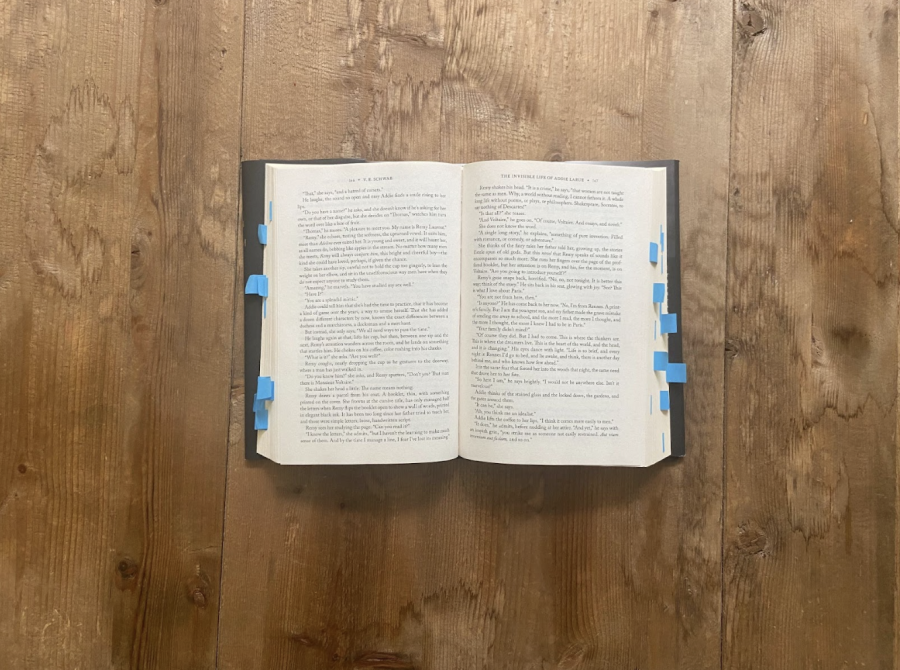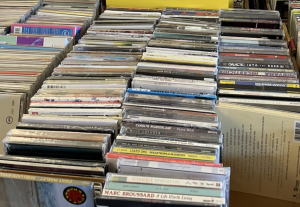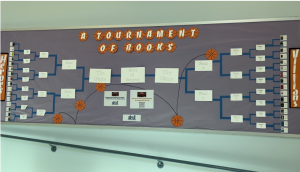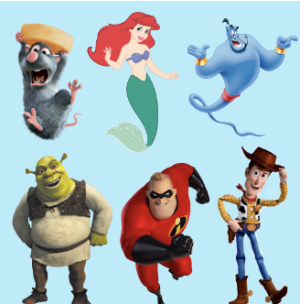Trashy books trump time-honored classics
Many people flaunt the importance of classics and critically acclaimed books, however it may be this snobbery that drives many away from the joy of reading. We must learn to enjoy trashy books guilt and judgment free.
Recently, I’ve started reading young adult (YA) books again.
Gasp, I know. All those soulless, derivative, “Hunger Games” knock-offs – how could I?
For the last few years I’ve kept away from YA books, only ever indulging in them either ironically or with massive guilt and shame (“Twilight,” I struggle to admit, is a page turner — I had to stop myself from reading the sequels). In an attempt to prove my literary maturity to myself, or maybe it was a kind of self-flagellation, I forced myself to read high-brow “adult” books.
The judgment I had for YA books was the result of a sneaky, unspoken intellectual elitism among readers.
School assigned reading perpetuated my belief that classic books had value greater than fun fiction. I once spent a summer slogging through several literary classics, including “The Picture of Dorian Gray,”, “Fahrenheit 451” and “Demian.” I shudder at the memory of this time. And somewhere along the way, I lost the simple joy of reading amidst a slew of unenjoyable school assigned classics.
I felt pressured to read books that were “really saying something.” But, as it turned out, these critically acclaimed pieces of literature or classics were rife with symbolism which I never untangled and themes that I don’t care about.
So I negotiated myself down to the most acclaimed (and long) fantasy and sci-fi I could find: “Dune,” “Game of Thrones,” “The Priory of the Orange Tree,” et. al. Although they were more enjoyable, they were still tiring: too many characters with weird names, complex political tensions and near unintelligible world-building.
There are all sorts of videos and articles online preaching the benefits of reading, guiding people on how to read MORE and FASTER, and overall completely ignoring the point of reading.
The whole reason you pick up a book and point your eyeballs at it is to be entertained. Reading is a healthy, important form of entertainment. But too often people forget that reading is just that — entertainment.
We don’t all force ourselves to watch sad intellectual movies or shows. Most of the Oscar-winning, critically adored movies are basically unknown to the general public. That’s not to say that they aren’t well-made, but there’s a difference between well-made and enjoyable. Let me be clear that this is no criticism of those kinds of movies or books. They’re just not for everyone all the time.
Many books are well-written, but I’ve found that the enjoyment and personal meaning of a book lies almost purely in its relatability. Maybe I’m just a picky reader, but lots of well-loved and popular books like “Where the Crawdads Sing” have fallen short for me.
My most loved books (“The Magicians,” “The Invisible Life of Addie LaRue” and “A Darkling Sea,” to name just a few) are a quirky mix of acclaimed and unknown. Sometimes you read a book, see the flaws in the writing, the inconsistencies in the story, but a heartbreakingly relatable character will make you love it.
Summer’s coming, so stock up on your mass-market romances, derivative YA books, 900-page gut-spilling fantasy and Asimov-regurgitations of sci-fi books. Hide the book cover from your friends if you must, but read what you enjoy.

Creative Director, Maya Hruskar ’23, has had a passion for journalism since her freshman year. Not liking her traditional English class very much, Hruskar...





















































